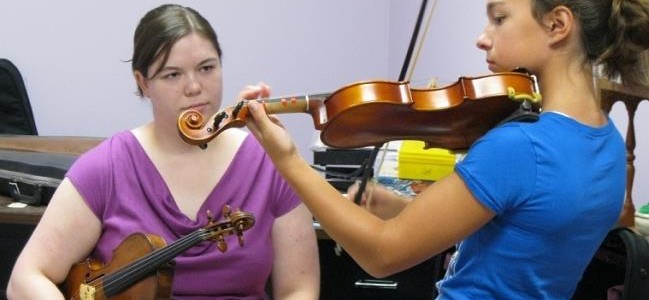Music Lessons Peachtree City
Basics for Choosing Music Lessons in Peachtree City

Peachtree City Music Lesson Guide

Choosing the right music instructor or music lesson company in Peachtree City is really important to a students overall success. In this music lesson article we share some basic information in relation to choosing a music instructor or company for your training. If you have a specific music instructor or company you would recommend in Peachtree City, GA 30269, please leave a comment below with their information and why you prefer their services.
Posture: Sitting and Standing Correctly Mean Better Performance
For vocal performance, teachers show students how to utilize breath control, vowels, shoulder and chest positioning. Techniques like raising your soft palate (it happens when you yawn), using rounded vowels, and strengthening breath control muscles are often used by the best teachers to create powerful and beautifully controlled sound.
For instruments, instructors teach students how to correctly hold their instrument, use controlled air release techniques for brass and woodwind instruments, and how to sit to create an open airway for producing even and vibrant sounds.
Technical Exercises: Mastering the Basics
Althought considered by many students to be dull time wasting activities; scales, arpeggios, and rhythms provide a fundamental foundation for knowing how to play a variety of music.
Percussion instruments use rudiments that help with drumming patterns, roll techniques and other little nuances such as flams and drags. There are sets of exercises for piano designed to strengthen both hands to make them equal. Brass players practice lip slurs, which are unarticulated changes in embouchure. Woodwind players (Saxophone, Clarinet, and Flute) have a huge gamet of exercises to help with tonguing techniques, finger dexterity, and tone development.
Measuring Progress
Typical ways to measure and quantify progress involve mastering scales, songs, and performing pieces. Recitals provide a way to showcase and connect different students while learning to command good stage presence and control nerves. Teachers can often use programs that allow students to practice pieces to live music, record themselves, and get immediate feedback from home, using their computer.
Extra Musical Benefits
A study by E. Glenn Schellenberg at the University of Toronto at Mississauga, was published in a 2004 issue of Psychological Science, found an increase in the IQs of six-year-olds who were given weekly voice and piano lessons. Schellenberg provided nine months of piano and voice lessons to a dozen six-year-olds, drama lessons (to see if exposure to arts in general versus just music had an effect) to a second group of six-year-olds, and no lessons to a third group. The children’s IQs were tested before entering the first grade, then again before entering the second grade.
The children who were given music lessons over the school year tested on average three IQ points higher than the other groups.
A study published in 2007 by Christopher Johnson, professor of music education at the University of Kansas, revealed that students in elementary schools with superior music education programs scored around 22 percent higher in English and 20 percent higher in math scores on standardized tests, compared to schools with low-quality music programs, regardless of socioeconomic disparities among the schools or school districts. Johnson compares the concentration that music training requires to the focus needed to perform well on a standardized test.
Best Music Lessons in Peachtree City
The best music lessons will ultimately give students an enjoyable and challenging experience: good technique, a sound knowledge of basics that allow them to play by ear, and master a variety of songs, and a detailed plan to measure their progress and help achieve their personal goals.








